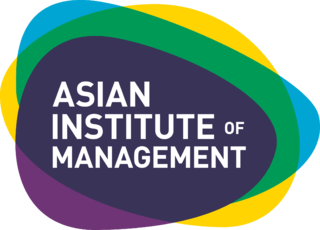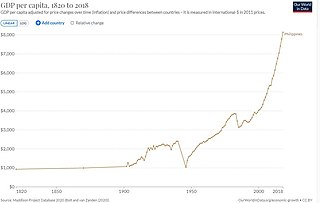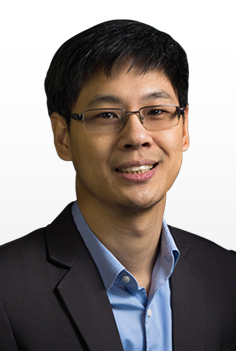Related Research Articles

The Ateneo de Manila University, also known simply as the Ateneo de Manila, the Ateneo, or AdMU, is a private, research, basic and higher education institution along the historic Katipunan Avenue in Quezon City, Philippines. Founded in 1859 as Escuela Municipal de Manila, the school was founded and is run by the Society of Jesus, and is the second-oldest Jesuit-administered institution of higher learning in Asia-Pacific.

Corporate social responsibility (CSR) is a form of international private business self-regulation which aims to contribute to societal goals of a philanthropic, activist, or charitable nature by engaging in or supporting volunteering or ethically oriented practices. While once it was possible to describe CSR as an internal organizational policy or a corporate ethic strategy, that time has passed as various national and international laws have been developed. Various organizations have used their authority to push it beyond individual or even industry-wide initiatives. In contrast, it has been considered a form of corporate self-regulation for some time, over the last decade or so it has moved considerably from voluntary decisions at the level of individual organizations to mandatory schemes at regional, national, and international levels. Moreover, scholars and firms are using the term "creating shared value", an extension of corporate social responsibility, to explain ways of doing business in a socially responsible way while making profits.

The Asian Institute of Management (AIM) is an international management school and research institution. It is one of the few business schools in Asia to be internationally accredited with the Association to Advance Collegiate Schools of Business (AACSB). It was established in partnership with Harvard Business School and uses the Harvard Business School case study teaching methodology. Prof Stephen Fuller of the Harvard Business School was its first president, to be succeeded by another professor from Harvard. It was described by Asiaweek magazine as the best in the Asia-Pacific region in terms of executive education.
SM Investments Corporation (SMIC), also known as SM Group, is a Filipino conglomerate with interests in shopping mall development and management, retail, real estate development, banking, and tourism. Founded by Henry Sy, it has become one of the largest conglomerates in the Philippines, being the country's dominant player in retail with 208 stores nationwide. Of these, 47 are SM Department Stores; 38 are SM Supermarkets; 37 are SM Hypermarkets and 86 are SaveMore branches.

The Philippines' Department of Social Welfare and Development is the executive department of the Philippine Government responsible for the protection of the social welfare of rights of Filipinos and to promote the social development.

Nicanor Jesús "Nick/Nicky" Pineda Perlas III is a Filipino activist and awardee of the Right Livelihood Award in 2003, which is often referred as an alternative Nobel Prize.
The John F. Cotton Corporate Wellness Center or John F. Cotton Hospital Center for Corporation Wellness, formerly known only as the John F. Cotton Hospital (JFCH), is a privately owned hospital located inside the compound of Meralco, a major electric company in the Philippines.
The Comprehensive Agrarian Reform Program, more commonly known as CARP, is an agrarian reform law of the Philippines whose legal basis is the Republic Act No. 6657, otherwise known as the Comprehensive Agrarian Reform Law (CARL). It is the redistribution of private and public agricultural lands to help the beneficiaries survive as small independent farmers, regardless of the “tenurial” arrangement. Its goals are to provide landowners equality in terms of income and opportunities, empower land owner beneficiaries to have equitable land ownership, enhance agricultural production and productivity, provide employment to more agricultural workers, and put an end to conflicts regarding land ownership.

The economic history of the Philippines chronicles the long history of economic policies in the nation over the years.
The Coco Levy Fund Scam was a controversy in the 1970s and 1980s in the Philippines involving former President Ferdinand Marcos and his cronies. It is alleged that Marcos, Danding Cojuangco, Juan Ponce Enrile, and others conspired to tax coconut farmers, promising them the development of the coconut industry and a share of the investments, but on the contrary used the collection fund for personal profit, particularly in the purchase of United Coconut Planters Bank (UCPB) and a majority stake in San Miguel Corporation (SMC), to name a few.

According to official government statistics, in 2021, the Philippine poverty rate rose to 18.1%, or roughly 19.99 million Filipinos, after the COVID-19 pandemic hampered years of government poverty reduction efforts; this was higher than the 16.6% or 17.67 million recorded in 2018 but lower than the 25.2% poverty rate recorded in 2012.

Edwin Gariguez is a Filipino religious leader and environmentalist. He was awarded the Goldman Environmental Prize in 2012, for his voicing of protests on behalf of indigenous communities against large scale mining projects in the Philippines. Edwin Gariguez was the former executive secretary of National Secretariat for Social Action (NASSA), the humanitarian, advocacy and social development arm of the Catholic Bishops' Conference of the Philippines (CBCP).
Land reform in the Philippines has long been a contentious issue rooted in the Philippines's Spanish Colonial Period. Some efforts began during the American Colonial Period with renewed efforts during the Commonwealth, following independence, during Martial Law and especially following the People Power Revolution in 1986. The current law, the Comprehensive Agrarian Reform Program, was passed following the revolution and extended until 2014.

Aniceto "Chito" Mangahas Sobrepeña is the president of the Metrobank Foundation. He is also the executive director of GT Foundation, vice chairman of the Federal Land, vice chairman, Manila Doctors Hospital, Inc. and a member of the board of trustees of the Toyota Motor Philippines School of Technology, Inc.(TMP Tech). Prior to working in the private sector, Sobrepeña was concurrently the cabinet secretary in the Office of the President and Head of the Presidential Management Staff during President Corazon C. Aquino’s administration, and deputy director general of the National Economic and Development Authority (NEDA).
Slums are traditionally described as dense urban settlements, usually displaying characteristics such as crowded and compact housing units, informal delivery of utilities, and unofficial recognition by local government. In the Philippines, residents of slum areas are commonly referred to as "squatters" and have historically been subject to relocation or forced demolition. With a steadily growing metropolitan area, Metro Manila is subject to a densifying population of slum dwellers—a 2014 article states that Manila has an estimated 4 million people living in slums, out of a total population of 21.3 million.

Rodrigo Duterte became the 16th President of the Philippines on June 30, 2016, succeeding Benigno Aquino III. He was the first president from Mindanao, the first president to have worked in all three branches of government, and the oldest to be elected. He won the election amid growing frustration with post-EDSA governance that favored elites over ordinary Filipinos. His tenure ended on June 30, 2022.
Jeffrey Tarayao is a Filipino business executive. He is currently President of OneMeralco Foundation, the corporate foundation and social development arm of the Manila Electric Company, the largest electric utility company in the Philippines. He is currently a faculty member of the University of Santo Tomas.

Karl Kendrick Tiu Chua is a Filipino economist who served as the Director-General of the National Economic and Development Authority (NEDA) and Secretary of Socioeconomic Planning under the Duterte administration from 2021 to 2022. He was appointed by President Rodrigo Duterte as acting secretary in April 2020, and became the official secretary on June 2, 2021, succeeding Ernesto Pernia. A former World Bank senior economist, he previously served as an undersecretary of the Department of Finance.

Squatting in the Philippines occurs when people build makeshift houses called "barong-barong"; urban areas such as Metro Manila and Metro Davao have large informal settlements. The Philippine Statistics Authority has defined a squatter, or alternatively "informal dwellers", as "One who settles on the land of another without title or right or without the owner's consent whether in urban or rural areas". Squatting is criminalized by the Urban Development and Housing Act of 1992, also known as the Lina Law. There have been various attempts to regularize squatter settlements, such as the Zonal Improvement Program and the Community Mortgage Program. In 2018, the Philippine Statistics Authority estimated that out of the country's population of about 106 million, 4.5 million were homeless.
Samuel S. Verzosa Jr. is a Filipino businessman who is known for being the co-founder of the multi-level marketing company, Frontrow. He is also serving as the representative of the Tutok To Win Party-List in the House of Representatives.
References
- ↑ "Howard Dee among this year's Ramon Magsaysay awardees". Manila Bulletin News. Retrieved 2018-10-30.
- ↑ "Reducing poverty, empowering lives". www.sunstar.com.ph. Retrieved 2018-10-30.
- ↑ Inquirer, Philippine Daily. "Victory Liner pays it forward through foundation" . Retrieved 2018-10-30.
- ↑ Tsutsui, Kiyoteru; Lim, Alwyn (2015-04-16). Corporate Social Responsibility in a Globalizing World. Cambridge University Press. ISBN 9781107098596.
- ↑ Caruncho, Eric S. "Why Howard Dee's work is unending" . Retrieved 2018-10-30.
- ↑ Hopkins, Michael (2012-03-29). The Planetary Bargain: Corporate Social Responsibility Matters. Routledge. ISBN 9781136552663.
- ↑ "PBSP and CSR | The Freeman". philstar.com. Retrieved 2018-10-30.
- 1 2 "Manila Times - CSR projects make up for poor Filipinos' disadvantages" . Retrieved 2018-10-30– via PressReader.
- ↑ "PBSP celebrates 30 years of uplifting lives in the Visayas | The Daily Guardian". The Daily Guardian. 2018-10-17. Retrieved 2018-10-30.